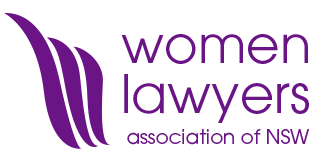GENDER EQUITABLE BRIEFING POLICY
 What Is It And What Does It Mean For My Practice?
What Is It And What Does It Mean For My Practice?
In June 2016, the Law Council of Australia adopted the Equitable Briefing Policy[1]. Law firms, government, companies, individual barristers and floors of barristers can formally adopt the Policy. The Policy provides a straight forward and easy way in which to consciously consider briefing or selecting women barristers.
The purpose of the Policy is to maximise choices for legal practitioners and their clients by shining the light on the best and brightest female counsel and proving a bigger pool of potential counsel to choose from. Improving briefing practices will not only maximise choices for clients and legal practitioners but it will also lead to improved retention and progression of women barristers.
The Policy sets out targets for briefing female counsel. The targets are not mandatory. The targets can be adopted to the local conditions. For example a law firm that practices predominantly in family and criminal law will find it much easier to meet and exceed the targets as compared to a law firm that practices in other areas where historically women have been briefed in much lower numbers such as taxation and corporate law. However, a quick look at the NSW Bar Association web site shows that there are many highly experienced women practicing in such areas.
The Law Council and the NSW Law Society can assist law firms by providing information, recommendations, templates for reporting and regular information and education seminars and workshops.
How to Identify Women Barristers
The Policy provides the following practical steps:
- Prepare and maintain a referral list/database of women barristers.
- Liaise with the Bar Association and Clerks from Chambers.
- Invite female barristers to provide you with their CV.
- Ask for a recommendation from a barrister.
- Include a name of at least one female barrister in a list if asked to provide a list to a client.
For Law Firms
Adopting the Equitable Briefing Policy demonstrates a commitment to promoting equality and the pursuit of excellence in the law as well as the need to reflect the diversity of clients and the Australian community.
Law firms are required to:
- Make all reasonable endeavours to brief women barristers with relevant seniority and expertise, experience and interest in the relevant practice area:
- By 1 July 2018:
- Brief senior women barristers in at least 20% of briefs and/or 20% of the value of all brief fees paid to senior barristers;
- Brief junior women barristers in at least 30% of briefs and/or 30% of the value of all brief fees paid to senior barristers;
- Provide a confidential report to Law Society or directly to the Law Council by 30 September each year with respect to measures taken.
Some administrative changes may need to be made to the systems to capture the data. Law Council is working together with the Law Societies to develop templates for reporting.
For In-house counsel and governments who do not brief directly
The NSW and Federal Governments had previously adopted an Equitable Briefing Policy and are familiar with the concept of equitable briefing. The Policy requires in-house counsel to:
- Require that the firms they engage to confirm their adoption of the Policy.
- Request regular reporting from firms as to their performance against the targets, both overall and on matters for that client; and if women barristers are not recommended or targets not met, asking “why not?”
For Junior Barristers
All barristers have an interest to enhance the profession’s credibility by making it more representative of the composition of the community which it serves. The judiciary and the wider community rely on the Bar to bring a wide experience so that decision making can be continuously improved. Furthermore, there are community expectations that there is fairness in all aspects of the administration of law. It is critical that fairness is seen to occur through diversity of legal representation and as decision makers.
Barristers often get asked to recommend other counsel when they are unable to accept a brief. Barristers often do make recommendations. When such recommendations are made, the recommendation should include at least one woman barrister unless there are no qualified women. In NSW there are 493 women practicing as barristers, of those 37 are senior counsel[2]. Women practice in all areas identified by the NSW Bar Association on its website. It is easy to conduct a search of female counsel practicing in particular practice areas. Most barristers include a CV on their website which reflects their background and practice areas.
For Senior Barristers
Senior barristers, when asked to recommend other senior or junior counsel should include at least one woman barrister unless there are no qualified women.
As well, senior barristers should actively consider a woman as junior counsel when they have an opportunity to do so.
Senior barristers who adopt the Policy are required to prepare an annual report to the Bar Association setting out the number of female juniors led, female junior and senior barristers briefed as a result of recommendations made (if known) and the number of female barristers recommended.
Barrister’s Clerks
Clerks also have a role to work with barristers who adopt the Policy to develop practices and protocols to assist with barrister’s reporting requirements. Clerks may need to work together where they are asked to recommend counsel and there there no qualified women on their floor. Arrangements between floors can be made to identify women practicing in specific areas so that proper recommendations can be made to briefing entities.
[1] https://www.lawsocietysa.asn.au/pdf/Nat_Model_Gender_Eq_Briefing_Policy.pdf
[2] http://www.nswbar.asn.au/the-bar-association/statistics
Larissa Andelman, VP WLANSW & Co-Chair of the Workplace Practices SubCommittee & Barrister at 15 Wardell Chambers


